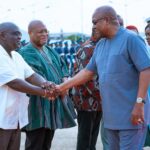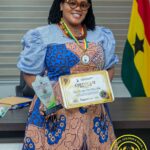By Vivian Amoah
Accra, Ghana – Mr. Edmond Muokala, UNESCO Country Representative and Head of Office in Ghana, has emphasized the urgent need to recognize and empower community media as a vital pillar of Ghana’s democratic and development agenda. He made these remarks at a high-level consultation on the proposed Broadcasting Bill held at the Alisa Hotel in North Ridge, Accra today, 5 June,2025
Speaking during the event, Mr. Muokala underscored the role of community broadcasting in giving voice to marginalized and rural populations, stressing the need for a more inclusive media landscape that reflects the diversity of Ghana’s people.
“Community media serves as the voice of local people,” he said. “Unlike commercial or state-run media, it engages directly with audiences at the grassroots level, reflecting their cultures, concerns, and aspirations something national media often cannot do.”
Mr. Muokala warned that news and information from urban areas tend to dominate the national media space, often overshadowing rural voices. He called for a balance in information flow to ensure that development efforts are well-informed by the realities of communities across the country.
He described community radio and local media as essential tools for promoting civic participation, education, and access to information in underserved areas. According to him, community broadcasting helps foster social inclusion by creating platforms for marginalized groups and encouraging local development initiatives.
“This form of media promotes diversity, social cohesion, and participatory democracy values that are often missing in commercial media,” he noted.
While praising the potential of community media, Mr. Muokala highlighted several challenges facing the sector in Ghana, including limited funding, inadequate infrastructure, and regulatory hurdles. He expressed hope that the new Broadcasting Bill would address these issues in a structured and supportive way.
He added that supporting community media aligns with Ghana’s obligations under international frameworks on freedom of expression and access to information.

















